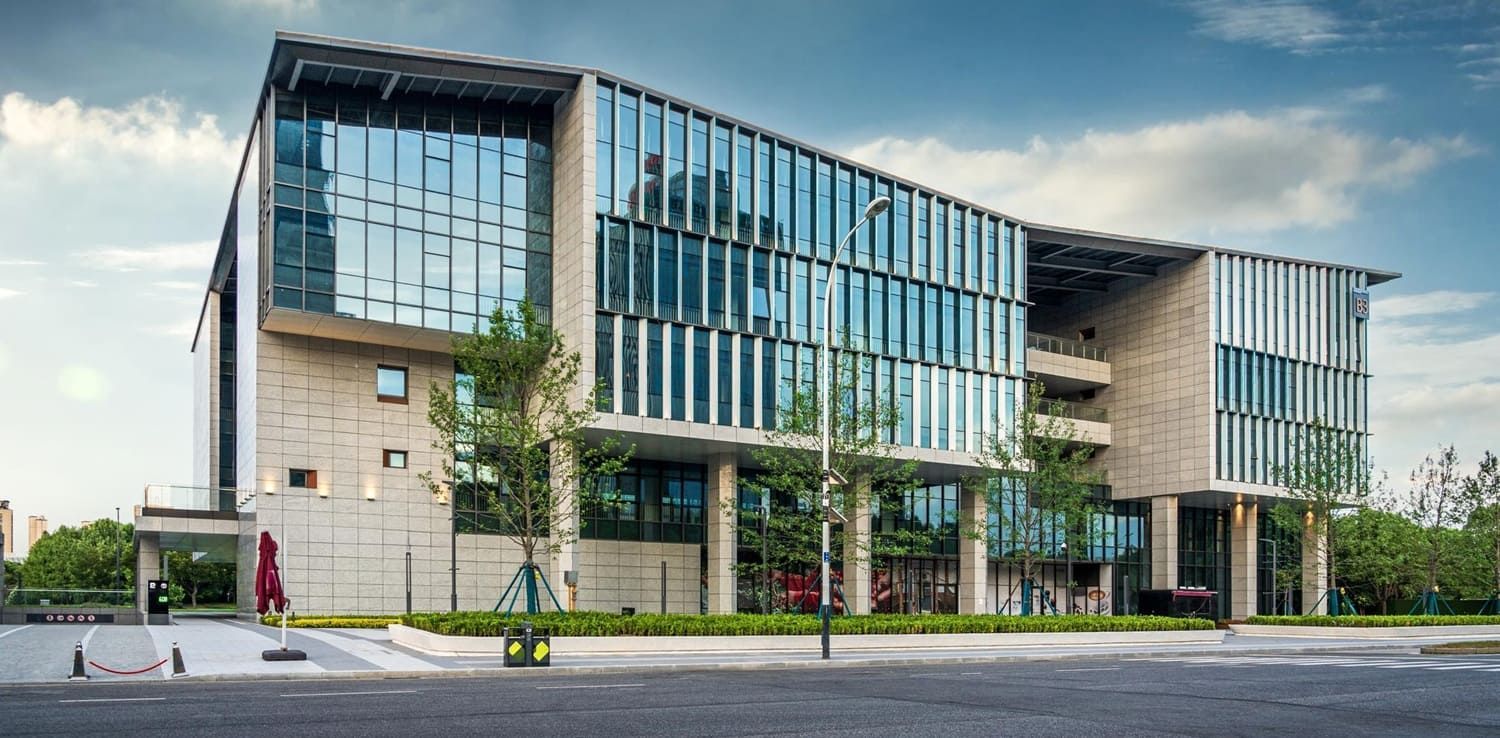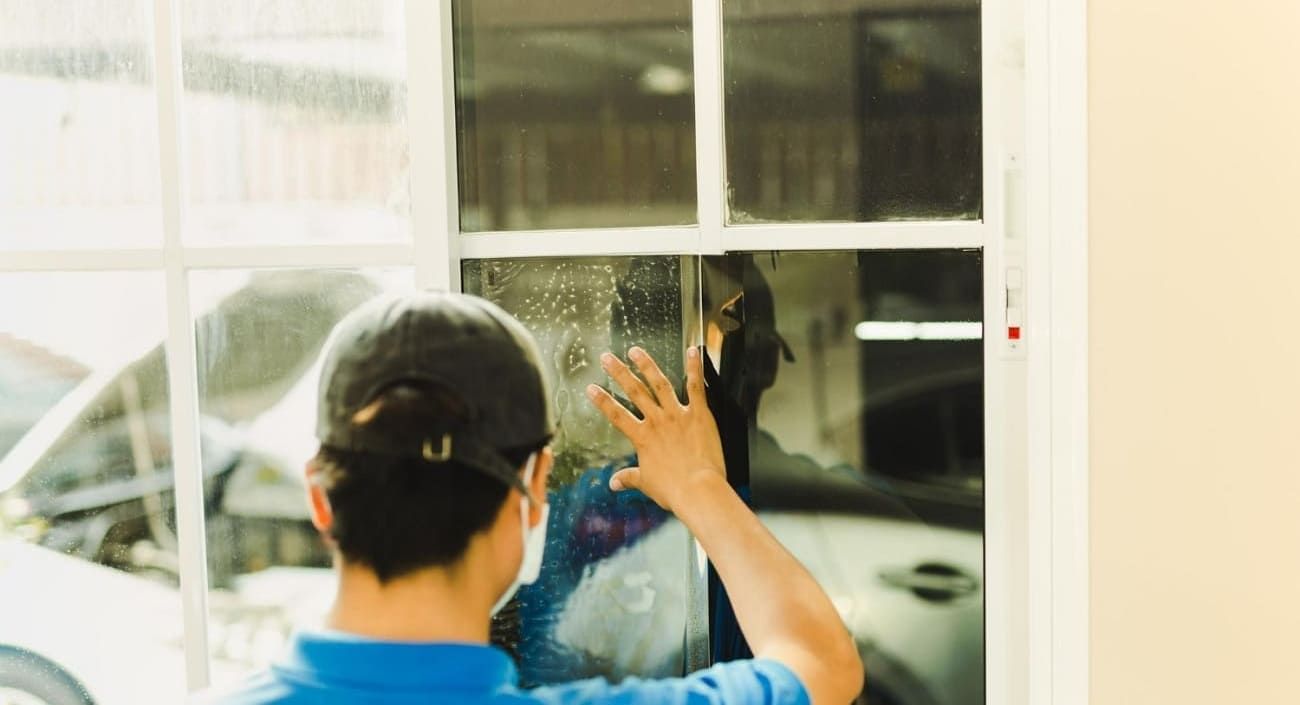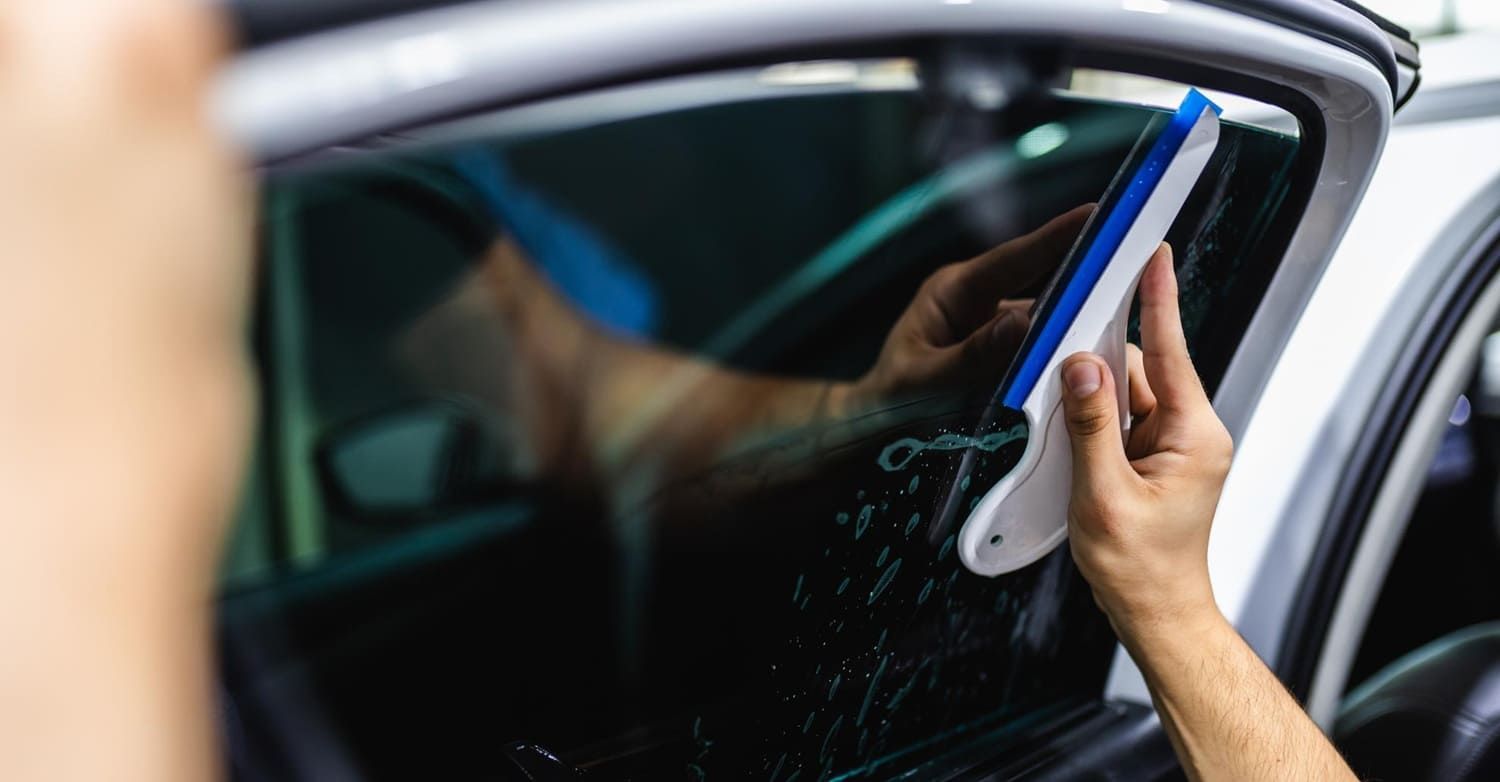Legal Considerations for Commercial Tinting
Commercial tinting can be a fantastic way to enhance the aesthetic appeal and functionality of business premises. Whether it's for reducing glare, enhancing privacy, or improving energy efficiency, window tinting offers numerous benefits. However, like any modification to a commercial property, it comes with its own set of legal considerations. Understanding the regulations surrounding commercial tinting is crucial to ensuring compliance and avoiding potential legal issues. By adhering to these legal frameworks, businesses not only protect themselves from fines and litigation but also uphold their reputation as responsible members of the community.

Understanding Tinting Regulations
Tinting regulations can vary widely depending on the jurisdiction. Each state, and sometimes each city, may have its own set of rules and guidelines regarding how much tint is permissible on commercial windows. These laws are typically designed to ensure safety and compliance with local standards. While the core aim of these regulations is to maintain a balance between privacy and safety, they also consider environmental impacts, such as energy efficiency and light pollution.
State and Local Laws
Before you embark on a commercial tinting project, it's important to familiarize yourself with the specific laws in your area. Some states have stringent requirements on the level of tint allowed, which can be measured in terms of visible light transmission (VLT). For instance, a lower VLT percentage means less light can pass through the window, resulting in a darker tint. These laws are often in place to prevent excessive tinting that could obscure visibility for both people inside the building and those outside.
It's also essential to consider local ordinances that might impose additional restrictions or provide specific exemptions. Consulting with a local attorney or a professional tinting service familiar with these laws can be invaluable. This proactive approach not only ensures compliance but also saves time and resources that might otherwise be spent addressing legal challenges. Moreover, understanding these laws can help businesses make informed decisions about the type of tinting that best suits their needs while remaining within legal boundaries.
Federal Guidelines
In addition to state and local laws, there are federal guidelines that must be considered. The Federal Motor Vehicle Safety Standards (FMVSS) set forth by the National Highway Traffic Safety Administration (NHTSA) provide regulations primarily for vehicles but can sometimes influence commercial properties, especially those involving fleet vehicles or transport services. While these guidelines predominantly focus on vehicles, their impact on commercial properties used for transportation logistics cannot be ignored.
Federal guidelines might not directly dictate how commercial buildings handle tinting, but they establish a framework that influences state and local regulations. Understanding these guidelines can help businesses that operate in multiple states ensure consistent compliance across all locations. Additionally, businesses should stay informed about any federal updates, as changes at the national level can prompt revisions in state or local laws that could affect their operations.
Key Legal Considerations
Safety Concerns
One of the primary reasons for tinting regulations is safety. Tinted windows can obscure visibility, which might pose risks in certain environments. For commercial properties, ensuring that tinted windows do not hinder emergency services or reduce visibility to unsafe levels is paramount. Safety concerns are particularly critical in high-traffic areas or locations where emergency vehicle access is crucial.
Moreover, in some jurisdictions, businesses are required to have clear signage indicating the presence of tinted windows to alert emergency personnel in case of an evacuation or emergency. This requirement underscores the importance of transparency and clear communication in maintaining safety standards. By prioritizing safety, businesses not only comply with legal requirements but also protect their employees and customers.
Privacy Versus Transparency
While one of the major advantages of window tinting is increased privacy, this must be balanced with the need for transparency in certain types of businesses. For example, financial institutions or retail businesses may be required to maintain a certain level of visibility for security purposes. Transparency can help deter criminal activities by allowing passersby to see inside the premises, which can be an important security measure.
Businesses must carefully consider the level of tint applied to ensure that it does not conflict with any legal requirements for transparency. Striking the right balance between privacy and transparency can also enhance customer trust, as clients appreciate knowing that businesses prioritize both security and openness. By evaluating the specific needs and legal obligations of their industry, businesses can make informed decisions about their tinting strategies.
Building Codes and Zoning Laws
Building codes and zoning laws play a significant role in determining whether and how you can tint your commercial property windows. These codes may restrict the type of materials used or dictate how modifications are carried out to ensure they meet safety and environmental standards. Compliance with these regulations is crucial not only to avoid legal penalties but also to ensure the structural integrity and environmental efficiency of the building.
It's advisable to check with local building authorities to ensure compliance with these regulations before proceeding with any tinting project. Engaging with these authorities early in the planning process can provide insights into potential challenges and opportunities for exemptions or adjustments. By aligning their tinting projects with building codes and zoning laws, businesses demonstrate their commitment to maintaining safe and sustainable operations.
Practical Steps for Compliance
Consulting Professionals
The complexities of tinting regulations mean that businesses should consider consulting professionals who specialize in commercial window tinting. A reputable tinting company will not only be familiar with the latest laws and regulations but can also provide guidance on the best types of tinting materials and techniques that meet legal requirements. These professionals can offer tailored solutions that balance legal compliance with aesthetic and functional goals.
Working with experienced professionals ensures that the tinting project is executed efficiently and meets all necessary standards. This collaboration can also prevent costly mistakes that might arise from misunderstanding or overlooking specific legal requirements. By investing in expert guidance, businesses can achieve the desired outcomes for their tinting projects while minimizing legal risks.
Documentation and Certification
Once your windows are tinted, it's important to maintain proper documentation and certification of compliance. This can include receipts, descriptions of the materials used, and any certifications provided by the tinting company. Having this documentation readily available can be useful in the event of an inspection or legal inquiry. Proper documentation serves as evidence of compliance and can expedite the resolution of any disputes or questions that arise.
Keeping detailed records also facilitates future maintenance or upgrades, as it provides a clear history of the materials and processes used. Businesses should establish a systematic approach to storing and updating these records to ensure they remain accessible and accurate over time. By prioritizing documentation, businesses reinforce their commitment to transparency and accountability.
Periodic Reviews
Regulations can change, so it's wise to conduct periodic reviews of your tinting to ensure ongoing compliance. This includes staying informed about any changes in local, state, or federal laws that might affect your business. Regular reviews help businesses adapt to evolving legal landscapes and avoid potential penalties associated with non-compliance.
Incorporating periodic reviews into your business practices can also identify opportunities for improvements or upgrades that enhance the effectiveness of your tinting solutions. By staying proactive, businesses demonstrate their dedication to continuous improvement and legal adherence. Regularly engaging with legal experts or industry associations can provide valuable insights into regulatory trends and updates.

Benefits of Legal Compliance
Adhering to tinting regulations not only helps avoid legal penalties but can also enhance your business's reputation. Clients and customers are more likely to trust a business that demonstrates a commitment to safety and compliance. A reputation for legal compliance can differentiate your business in a competitive market, as it signals reliability and integrity.
Furthermore, proper tinting can contribute to energy savings by reducing heat gain, which can translate into lower utility bills. This makes compliance not just a legal necessity but a financially savvy decision as well. By investing in compliant tinting solutions, businesses can enjoy long-term financial benefits and operational efficiencies. Moreover, energy-efficient practices can enhance the company's sustainability efforts, appealing to environmentally conscious consumers.
Conclusion
At Solar-Tec Glass Tinting, your premier and trusted window film installers serving Eustis, Leesburg, Clermont, and surrounding areas in Lake County, Florida, we help businesses enhance their properties with high-quality commercial window tinting solutions—while ensuring full legal compliance. Commercial tinting offers numerous benefits, from improved privacy to enhanced energy efficiency. However, understanding the legal landscape of local and state tinting regulations is essential to avoid potential issues and ensure peace of mind.
By working with experienced professionals like Solar-Tec Glass Tinting, you’ll receive expert guidance on compliance, proper documentation, and optimal film selection tailored to your business needs. This proactive approach allows you to move forward with your commercial tinting project confidently—enhancing your property’s functionality and curb appeal while staying fully compliant with Florida regulations.
Contact Solar-Tec Glass Tinting today for a free estimate, and let us help you improve your commercial space with smart, legal, and efficient window film solutions that reflect your commitment to quality and professionalism.
FAQs About Commercial Window Tinting Laws and Regulations
Are there legal limits on how dark commercial window tint can be?
Yes, some jurisdictions regulate the darkness or reflectivity of commercial window tint—especially on storefronts or buildings facing public streets.
Do commercial window films need to meet building codes?
In many areas, window films must comply with local building codes and fire safety standards, especially in schools, hospitals, or government buildings.
Is it legal to tint commercial windows in all states?
Window tinting is generally legal, but requirements vary by state and city. Some areas regulate visibility, film type, and emergency egress standards.
Do I need a permit to install window film on a commercial property?
Permits are rarely required for window film, but it’s best to check with your local building department, especially in historic or regulated zones.
Are there safety requirements for commercial window tint?
Yes, safety or security films often need to meet ANSI, UL, or ASTM standards—especially for blast resistance or anti-shatter performance.
Can commercial window tint block too much natural light?
Some jurisdictions may require a minimum amount of visible light transmission (VLT) to ensure safe lighting conditions indoors.
Do tinting laws differ for retail, office, and medical buildings?
Yes, medical facilities may need HIPAA-compliant privacy films, while storefronts may be subject to signage visibility laws.
Is reflective window tint legal for commercial buildings?
Reflective or mirrored tints are legal in many areas but may be restricted in residential zones or where glare affects traffic safety or nearby buildings.
Can tint affect emergency window exits in a commercial space?
Yes, any film applied to emergency egress windows must not obstruct or weaken the window’s performance. Safety-rated films are recommended.
Are there tint laws specific to schools and government buildings?
Yes, these buildings often require security film that meets specific impact or anti-intrusion standards, and may restrict certain film appearances.
Do I need to notify my landlord or HOA before tinting a commercial space?
If you lease the space or belong to a managed complex, you may need approval before installing film—especially if it alters the external appearance.
Can commercial tint be used on historic buildings?
Historic properties may be subject to preservation rules that restrict exterior film use. Clear or non-reflective films are sometimes allowed.
Are there fire safety ratings for commercial window films?
Yes, most commercial-grade window films must have Class A or B fire ratings to comply with local fire codes and building regulations.
Does installing film void window manufacturer warranties?
Some manufacturers void their warranties if aftermarket films are applied. Look for film brands that offer warranty coverage for glass compatibility.
Are energy efficiency films eligible for tax incentives?
Yes, certain energy-saving films may qualify for rebates, LEED points, or tax credits under local green building programs.
Can I install privacy film on street-facing windows?
Generally, yes—but some cities restrict overly dark or opaque films that block law enforcement visibility into commercial spaces.
Are commercial tint installers responsible for code compliance?
Professional installers should be knowledgeable about local tinting regulations and help ensure that your project meets legal standards.
Do commercial window films need to be labeled or certified?
Some safety and energy films must have proper labels or certifications to meet building inspection or compliance requirements.
Is anti-graffiti film regulated differently than solar film?
Anti-graffiti film usually isn’t subject to VLT or reflectivity laws, but may still need to meet durability or fire code standards.
Where can I check commercial tinting regulations in my area?
Contact your city’s building department, zoning office, or fire marshal, or ask your professional installer for guidance on local regulations.















